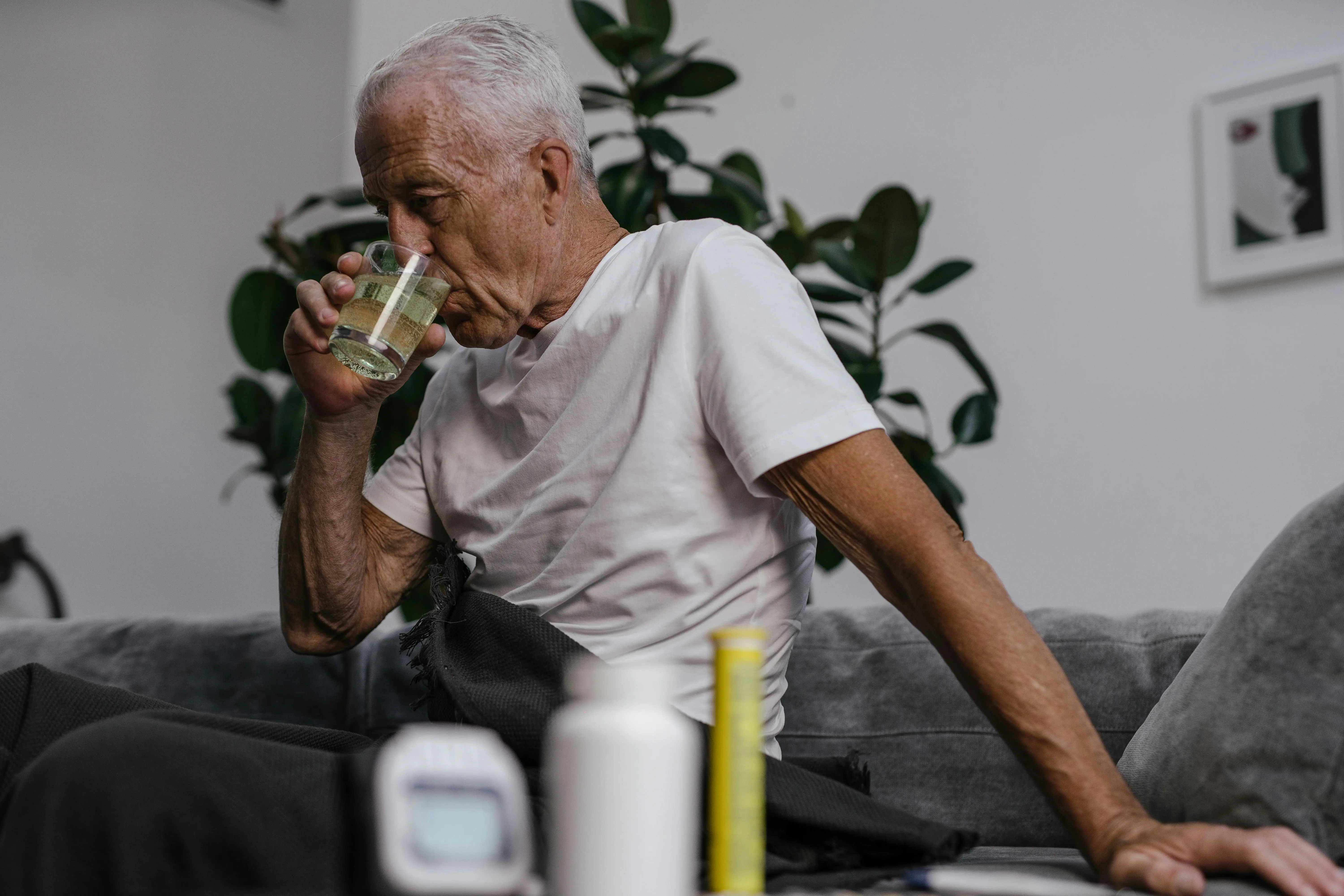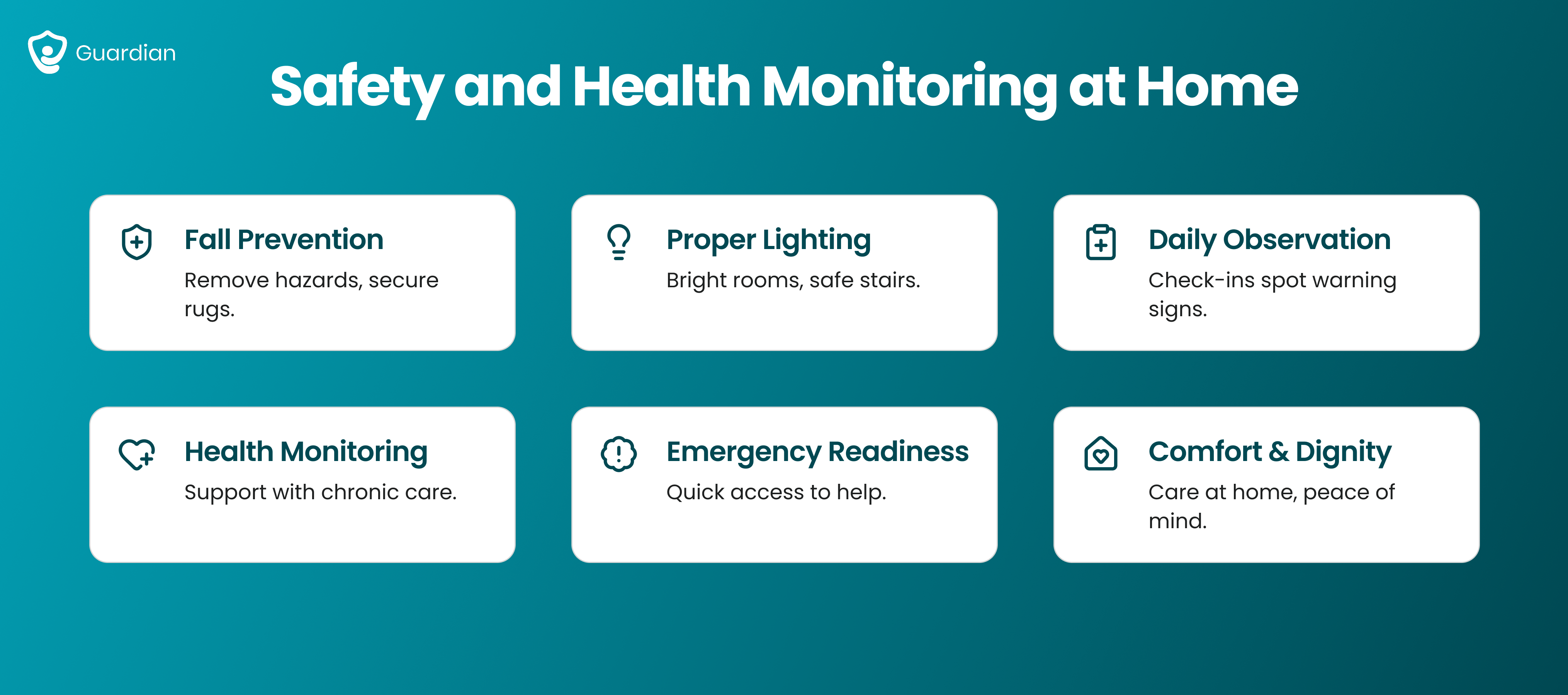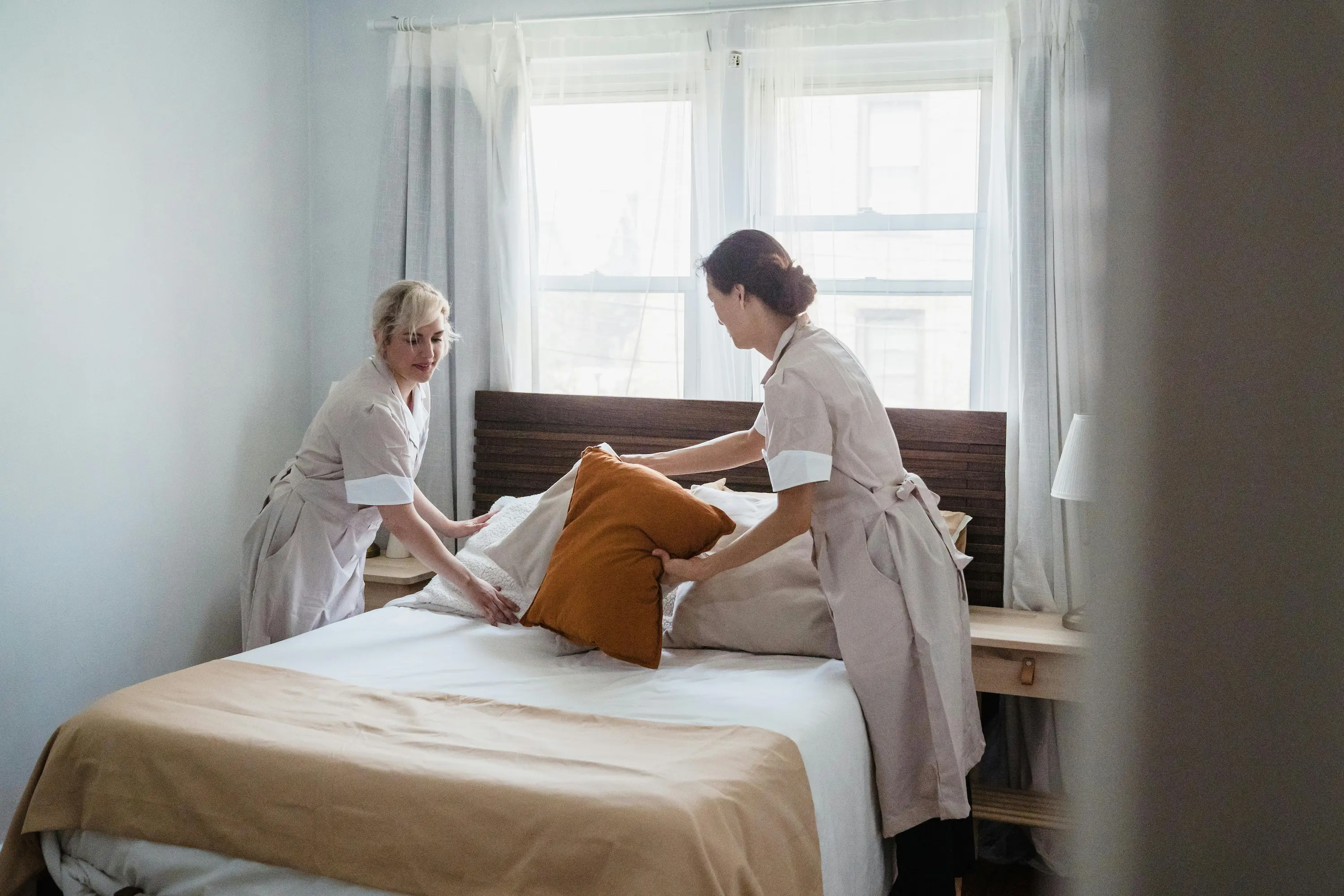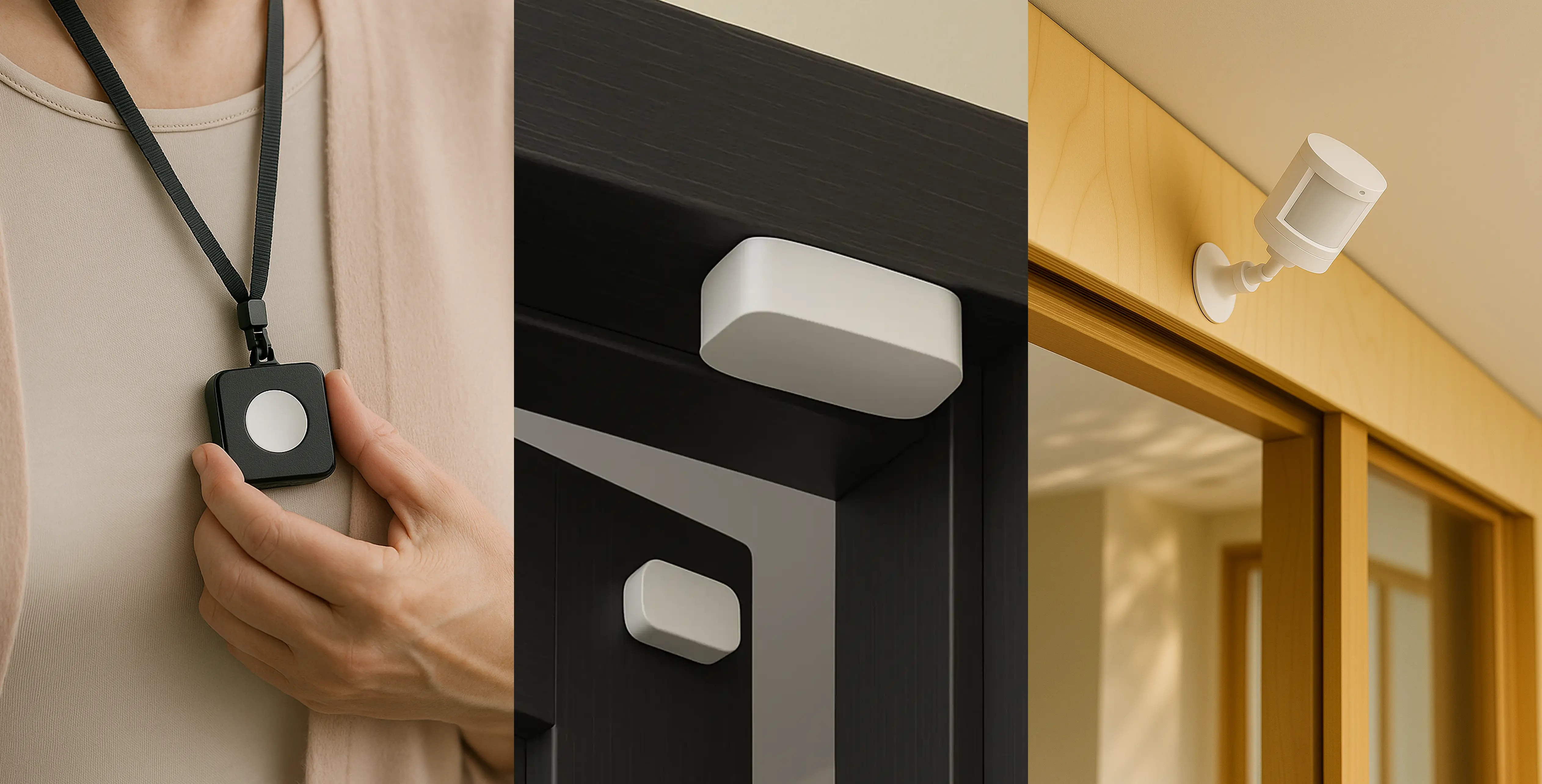Your Cart
FREE shipping & 30-day return
Does your elderly loved one live alone, and are you worried about their safety? Home care might be the solution you’ve been looking for. It allows seniors to live independently in their own homes while maintaining the support and security they need. With the right home care arrangement, you can give your loved one freedom – and yourself peace of mind.

Estonia’s population is aging rapidly, and more and more families face the question of how to ensure the best possible care for their elderly relatives. Home care offers seniors the chance to remain independent and comfortable in a familiar environment, while also reducing stress for both them and their families.
A home is more than just a physical space – it holds decades of memories, habits, and social connections. Home care helps preserve these vital aspects of life while providing the necessary support for daily activities.
Home care is important because it allows elderly and vulnerable people to live safely and independently, maintaining both quality of life and personal privacy.
Home care enables seniors to retain control over their daily routines – deciding when to eat, sleep, and engage in different activities. This autonomy is crucial for mental and emotional health, especially for older people who may otherwise feel that they are losing control as they age.
A personalized care plan is tailored to each individual’s physical, emotional, and cognitive needs, ensuring that the right level of support is provided without sacrificing independence.

A familiar environment plays a critical role in sustaining quality of life. Home care provides a comforting alternative to institutional care, allowing seniors to remain in the place they love, surrounded by memories, family, and community.
In Estonia, the system also supports family caregivers. For example, the city of Tallinn offers caregiver benefits ranging from €30 to €100 per month, depending on the level of care required. This support helps families keep their loved ones independent in everyday life.
Compared to institutional care, home care offers greater privacy. Seniors can maintain personal routines, host visitors on their own terms, and live with the dignity that comes with being in their own space.
Remaining at home also promotes natural interaction with family and friends, preserving vital social ties that support mental and emotional well-being.
Home care significantly contributes to maintaining a safe living environment. Caregivers can help with fall prevention by removing tripping hazards and ensuring optimal lighting at home.
Regular health monitoring and access to medical assistance help older adults manage chronic conditions such as diabetes, heart disease, or arthritis, all while being supported in the comfort of their own home.

Home care covers a wide range of services, enabling seniors to live at home with the support they need.
In Estonia, home care is provided both through the social welfare system and health insurance, although some services are still developing.
Typical care services include:
Medical care – Home nursing services that bring medical support directly to the patient’s home.
Social services – Family or municipal caregiving support to help with daily needs and short-term relief care.
Daily assistance – Household help such as cleaning, cooking, grocery shopping, and medication management.
Day centers – Community services that offer structured daytime activities while allowing seniors to continue living at home.
Services can include simple household chores like cleaning, laundry, changing bed linens, preparing meals, managing nutrition, shopping, and handling errands outside the home.

Local municipality – Contact your regional social services department for a needs assessment. For example, in Tallinn you can apply at your district office, where they determine the volume of service and your personal co-payment.
Home nursing – Request a referral from your family doctor for home nursing (covered by the Estonian Health Insurance Fund).
Full-time care – If staying at home becomes too difficult, consider a nursing home. Placement and funding are managed by the Social Insurance Board.
Costs depend on whether the service is provided by the local municipality or a private caregiver. Public services are generally cheaper, as they are subsidized, and co-payments are calculated based on income.
Private care services, however, follow market rates – often reaching several hundred euros per month, which may exceed the average pension.
The city of Tallinn provides a good example of state-supported care. In 2024, the city allocated €4.4 million for home care services, supporting 169 caregivers assisting the local community.
Co-payment depends on income and need. Starting in 2026, Tallinn will review co-payment levels annually to ensure accessibility.
Examples:
Pension €500 → typically €50–100 per month co-payment
Pension €700 → up to €140 per month
Low-income pensioners → minimal or no co-payment
Recent care reforms have added about €100 million in state funding, aiming to keep personal co-payments at around 50% of total expenses.
Private caregivers are usually more expensive than municipal services. In Estonia, the average hourly rate is €8–15, depending on the region, tasks, and caregiver experience.
Examples of monthly costs:
20 hours per week → €640–1200 per month
40 hours per week (full-time) → €1280–2400 per month
Advantages of private care:
Personalized and flexible care plans
Option to choose and quickly replace caregivers
More attention and time compared to large service providers
Challenges:
Higher cost compared to public services
No state support – full cost must be covered personally
Need to verify caregiver background and expertise
In addition to public and private care, there are several supportive solutions that enable elderly people to live independently and safely:
Wearable emergency alarms provide instant access to 24/7 emergency response centers.
Guardian sensors discreetly track daily activity (such as movement or leaving bed in the morning) and notify family if something unusual happens.
Smart monitoring solutions: motion or door sensors can track daily patterns without cameras, preserving privacy.

Municipal transport services help seniors get to medical appointments, shops, or other errands – often free or subsidized.
Volunteer support networks provide flexible help with everyday tasks while fostering community connections.
Guardian complements these services by monitoring well-being at home and notifying relatives in case of concerns.
State services: The national e-portal provides an overview of social support, benefits, home care, nursing, and available subsidies.
Home nursing: Detailed information can be found via the Health Insurance Fund’s website.
Tallinn’s municipal services: Official information on eligibility, applications, and costs.
If you want round-the-clock supervision without installing cameras, smart monitoring solutions are available.
They track activity through discreet sensors and can be used alone or in combination with public/private care services. This setup delays the need for costly full-time care while ensuring early safety interventions.
Home care = support at home, preserving independence and routines.
Nursing home = institutional environment requiring adjustment to rules and shared spaces.
Technology like Guardian offers a compromise: safety monitoring via sensors, without caregivers being present all the time.
Guardian and similar systems provide real-time alerts for unusual activity, such as falls or long inactivity, keeping family members informed immediately.
Yes – many municipalities provide social support or subsidies. Check with your local social services office for eligibility details.
Additionally, technology-based solutions like Guardian cost significantly less than daily in-person caregivers – with plans starting at just €13/month (full coverage at €43/month).

Aleks Timm leads Guardian, building privacy-first home safety technology that helps families care for elderly loved ones with dignity and peace of mind.
Read More